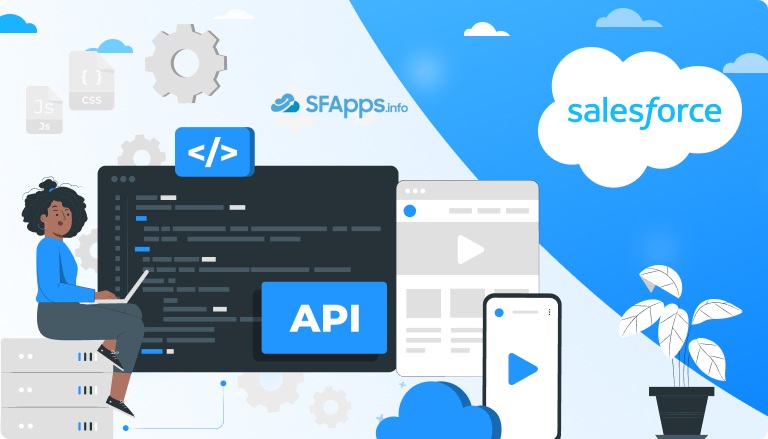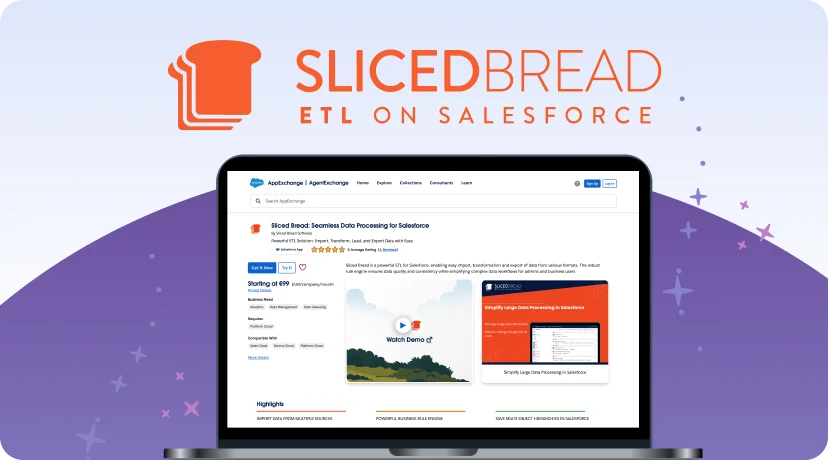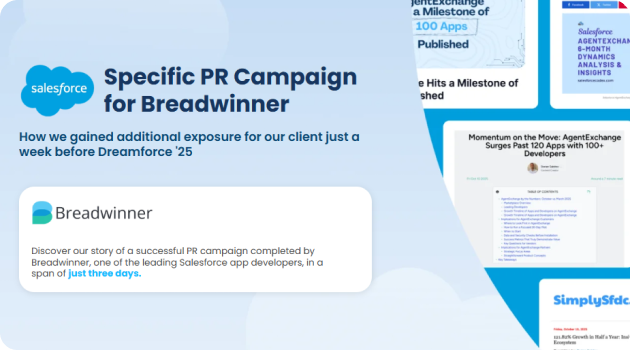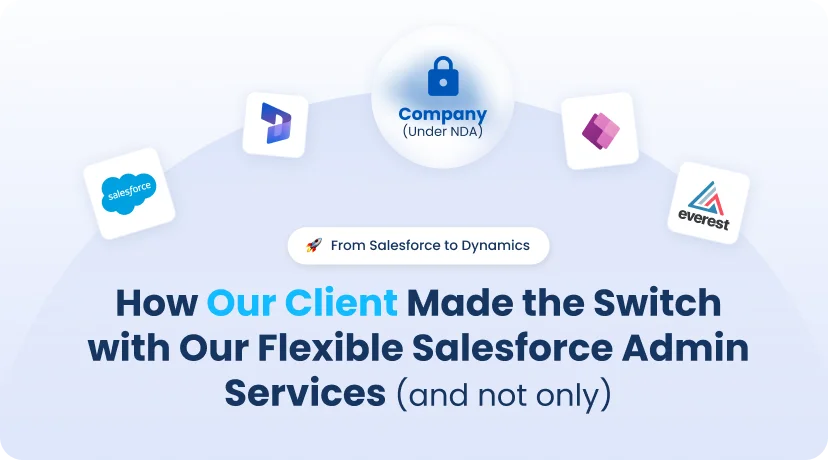
In our modern era of global connectivity surrounding us, APIs (Application Programming Interfaces) literally form the lifeline to facilitate smooth integrations of Salesforce with other systems. APIs allow Salesforce to talk to outside systems and facilitate data exchange, workflow automation, and overall contribute towards enabling Salesforce CRM’s functional prowess. Regardless of your requirements for connecting the Salesforce platform with external systems, process automation, or making the interface more user-friendly, the solution to all this lies in the hands of Salesforce API developers.
To fully realize these capabilities, it’s essential to hire Salesforce professionals who specialize in API development and integration. It is not possible to utilize a Salesforce API developer if business corporations need to customize their Salesforce environment beyond out-of-the-box. Salesforce API developers are able to leverage Salesforce’s vast sets of APIs to drive the highest data transactions, automate business processes, and provide secure, scalable integration with other applications.
Types of Salesforce APIs and How the Developers Use Them
Salesforce offers a suite of APIs for developers to incorporate its CRM platform into third-party systems and applications. The key Salesforce APIs that developers utilize are as discussed below:
REST API
For easy integration of third-party systems with Salesforce. Developers utilize the Salesforce REST API to execute CRUD (Create, Read, Update, Delete) operations on Salesforce data in lightweight and scalable manners.
Best suited for third-party system integrations, mobile applications, and web applications requiring low-latency feedback.
SOAP API
Salesforce SOAP API allows developers to interact with Salesforce using the XML-based SOAP protocol, best suited for complex integrations involving large data sets and high-volume transactions.
Primarily used in enterprise applications requiring secure, reliable communication between Salesforce and third-party applications.
Bulk API
Bulk API is for utilization with large sets of data. The Bulk API is utilized by developers to add, update, upsert, or delete Salesforce records in bulk asynchronously, and it is an easy utility to utilize in data migration or integration scenarios working with large amounts of data.
Streaming API
Salesforce Streaming API allows developers to stream real-time event notifications to other systems. Salesforce Streaming API is best suited for those applications which require updates within near real time, i.e., update or notification of new records or change in Salesforce data.
Apex REST API
Powerful API to allow developers to expose Apex classes and methods to outside systems as RESTful web services. Salesforce can be accessed by outside applications through custom business logic executed in Apex.
Metadata API
Used by Salesforce deployment and development, Metadata API allows metadata to be queried, updated or deployed for Salesforce (i.e., page layouts, custom fields, objects, etc.) and hence is an important tool when deploying automated deployments or Salesforce environment changes.
What is Salesforce API Developer and what do they do?
Salesforce API developers are highly skilled professionals who specialize in connecting Salesforce with external systems through a wide range of APIs, including REST, SOAP, Bulk, Metadata, and Streaming APIs. Their work ensures secure, scalable, and high-performance integrations that allow organizations to automate business processes, sync data across platforms, and unlock advanced Salesforce functionality.
Insight:
A recent Salesforce report reveals that organizations now utilize over 1,000 business applications on average, marking a nearly 10% increase from the previous year. However, less than 30% of these applications are integrated, leading to data silos, increased costs, and productivity challenges. This underscores the critical role of Salesforce API developers in bridging these gaps through effective integrations.
These developers play a vital role in tailoring Salesforce environments beyond default capabilities. By writing custom logic in Apex or configuring external services, API developers enable dynamic workflows, real-time updates, and smooth interoperability with ERPs, marketing platforms, data warehouses, and more.
For advanced front-end use cases, especially involving Lightning Components and dynamic user experiences, many companies also choose to hire Salesforce Lightning developers. These professionals combine API knowledge with expertise in Lightning Web Components (LWC), delivering highly interactive and modern Salesforce interfaces that leverage real-time data exchange.
According to IDC’s 2021 study, the Salesforce ecosystem is expected to create 9.3 million new jobs and $1.6 trillion in new business revenue globally by 2026. A significant portion of this growth is driven by demand for integration, automation, and customization, which are precisely the domains where Salesforce API developers excel.
As Salesforce maintains its leadership in the CRM space, the demand for talented API and Lightning developers will continue to rise. Organizations looking to future-proof their technology stacks and improve operational efficiency will increasingly need to hire Salesforce experts with strong API expertise.
Why Businesses Need Salesforce API Developers
An internal Salesforce API developer can benefit your company in numerous ways. Here are some of the most sought-after things these professionals do:
- Salesforce Integration with Third-Party Applications: Integrating Salesforce with third-party applications (e.g., marketing automation, accounting software) for smooth data exchange between applications.
- Automating Business Processes: Utilizing APIs to automate business processes, e.g., syncing data between Salesforce and other applications.
- Data Synchronization and Migration: Secure and reliable migration of data from Salesforce to, and between, other systems using Salesforce APIs.
- Custom API Endpoints: Defining custom RESTful APIs or Apex web services for bespoke integration.
- Real-Time Data Updates: Using the Streaming API to provide real-time data updates, keeping users updated with minute-by-minute information.
- Bulk Data Operations: Using the Bulk API to facilitate bulk data loads, i.e., in migration, import, or in other bulk processes.
- API Security Guaranteed: Creating and maintaining appropriate security protocols for Salesforce API calls to ensure data confidentiality and unauthorized access.
Salesforce API Development Pricing Operation
Salesforce API development pricing typically charges according to the following:
- Hourly Rates: Developers also charge on an hourly basis, varying with experience and location. The hourly rate for Salesforce API developers is anywhere from $25 to $150 per hour based on experience and project complexity.
- Packaged Deals: If you want to hire Salesforce REST API developer, you should know that the most of the Salesforce API developers for hire offer packaged deals according to project requirements. Standard packages are offered for small- to medium-sized integration with specified deliverables agreed upon upfront.
- Monthly Retainers: Some companies retain Salesforce API developers on a monthly retainer, especially where maintenance or integration is required on a continuous basis. This is between $4000 to $9000 per month, depending on the experience of the developer and project size.
FAQ
1. What is a Salesforce API developer?
An API developer at Salesforce ensures that integration of Salesforce with other applications is carried out in a manner that data is exchanged between systems without any issues. Developers are aware of various types of APIs offered by Salesforce and possess tested skills to develop custom API endpoints based on business needs.
2. What kinds of Salesforce APIs developers work with?
Salesforce API developers mainly use REST API, SOAP API, Bulk API, Streaming API, Apex REST API, and Metadata API for a particular integration task, data migration, and real-time updating.
3. How much will it cost to hire a Salesforce API developer?
The cost varies depending on developer experience and geographical location. An hourly rate varies between $50 and $150 per hour, and fixed package monthly rates range between $3,000 to $8,000 depending on project size.
4. Why would I need a Salesforce API developer?
We require a Salesforce API developer to connect other systems to Salesforce, automate business processes, enable real-time synchronization, and execute big data migrations. They make your Salesforce environment coexist peacefully with other business applications. This should be a top priority reason to hire Salesforce API developers.
5. Can I outsource a freelance Salesforce API developer?
Yes, most organizations use freelance Salesforce API developers to accomplish particular tasks or as a palliative measure for integration tasks to avoid the hire Salesforce API developer process. Freelance developers work at economic rates and are hired on an hourly or project basis.

Svitlana is a Communications Manager with extensive experience in outreach and content strategy. She has developed a strong ability to create high-quality, engaging materials that inform and connect professionals. Her expertise lies in creating content that drives engagement and strengthens brand presence within the Salesforce ecosystem. What started as a deep interest in Salesforce later transformed into a passion at SFApps.info where she uses her skills to provide valuable insights to the community. At SFApps.info, she manages communications, ensuring the platform remains a go-to source for industry updates, expert perspectives, and career opportunities. Always full of ideas, she looks for new ways to engage the audience and create valuable connections.






 Previous Post
Previous Post Next Post
Next Post